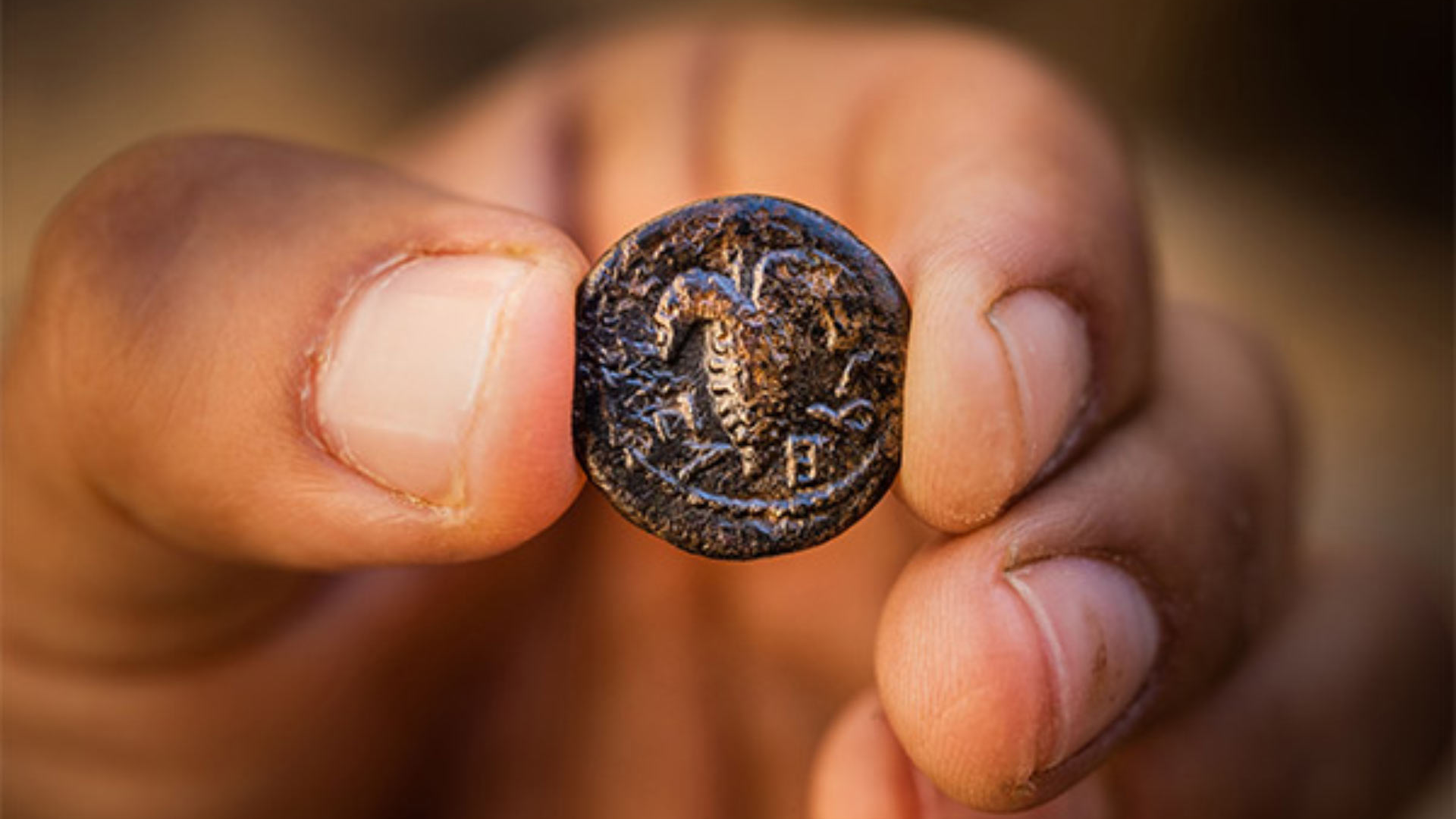Archaeologists have made a significant discovery in the Judean Desert, announcing the unearthing of a rare coin dating back nearly 1,900 years to the time of the Bar Kochba Revolt against Rome. The Israel Antiquities Authority revealed the find on Monday, shedding light on this pivotal period in Jewish history.
The coin, discovered in the Metsoke Ha’Atakim Nature Reserve near the Dead Sea, features a date palm and bears the inscription “Eleazer the Priest” in ancient Hebrew script. On the reverse side, a cluster of grapes is depicted with the words “Year One of the Redemption of Israel.” Remarkably, the coin was found alongside three others bearing the name “Simeon.”
The Bar Kochba revolt, also known as the Second Jewish-Roman War, was a momentous rebellion by the Jews of Judea against the Roman Empire between 132 and 136 CE. Led by the charismatic leader Simon Bar Kochba, the revolt initially saw significant success, leading to the establishment of an independent Jewish state with Jerusalem as its capital. However, the Romans eventually quashed the rebellion, culminating in the siege and destruction of Jerusalem.
Regarding the identity of Eleazar the Priest, whose name adorns the newly discovered coin, the Antiquities Authority proposed several possibilities. One theory suggests it may refer to Rabbi Eleazar Hamod’ai, a Tannaic Rabbi from the time of Rabbi Akiva, who played a significant religious role during the Bar Kochba Revolt and is believed to have resided in Beitar, the stronghold of the rebellion.
The Judean Desert Cave Survey, conducted by the Israel Antiquities Authority in collaboration with the Ministry of Heritage and the Archaeological Office for the Military Administration of Judea and Samaria, aims to preserve ancient artifacts from looters. Remarkable finds from this ongoing survey include Roman iron swords, scroll fragments of the Twelve Minor Prophets, and the oldest complete basket ever discovered.
Eli Eskosido, director of the Antiquities Authority, invited the public to join archaeological teams excavating in the caves of Nahal Darga, expressing anticipation for potential further discoveries. The Judean Desert continues to yield treasures of immense historical and cultural significance, offering valuable insights into the region’s rich past.





